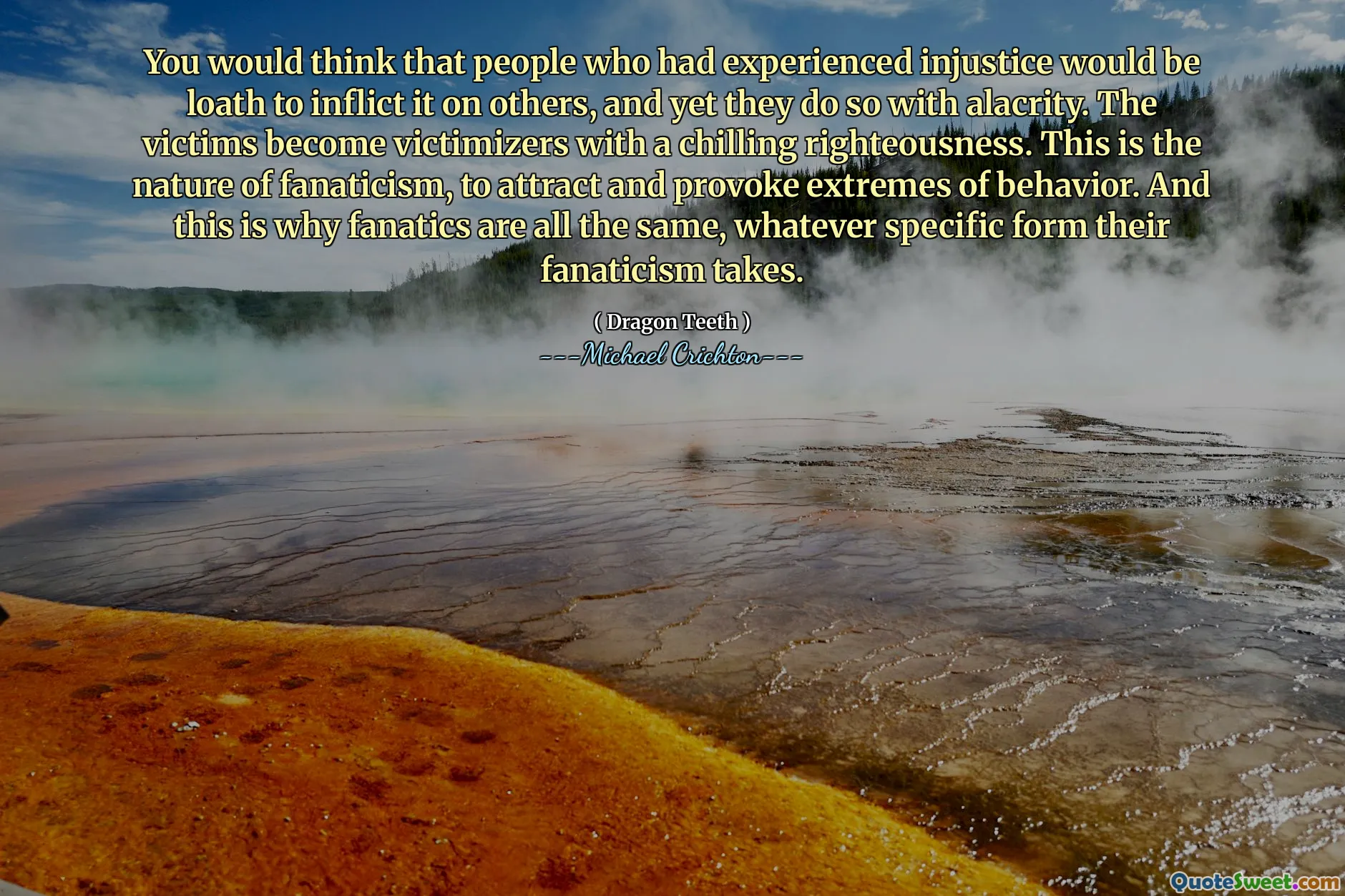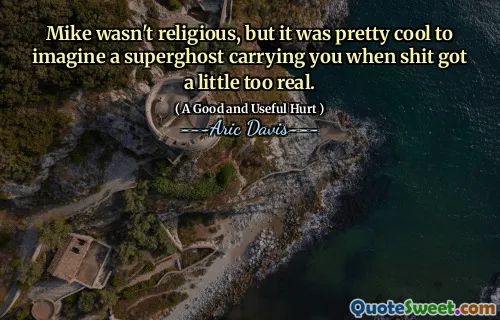
You would think that people who had experienced injustice would be loath to inflict it on others, and yet they do so with alacrity. The victims become victimizers with a chilling righteousness. This is the nature of fanaticism, to attract and provoke extremes of behavior. And this is why fanatics are all the same, whatever specific form their fanaticism takes.
The quote highlights the paradox where individuals who have faced injustice often end up perpetuating it themselves, seemingly without hesitation. This phenomenon illustrates a deep irony, as those who suffer can transform into oppressors, driven by a sense of righteousness that justifies their actions. It reflects a cycle where victimhood can breed a desire for revenge or retribution, leading to further harm.
Additionally, the quote suggests that fanaticism plays a pivotal role in this behavior, as it can elicit extreme actions and responses from individuals. Regardless of the specific ideology or belief, fanatics share a common thread of intensity that fuels both their actions and the injustices they perpetrate. This reinforces the idea that the cycle of victimization and oppression is a troubling aspect of human behavior, transcending individual circumstances.










